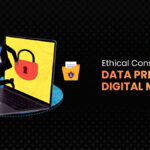In the rapidly evolving digital landscape, user experience (UX) design has become a pivotal factor for businesses seeking to gain a competitive edge. As technology continues to advance, the role of UX design has expanded, encompassing not only aesthetics but also functionality, accessibility, and overall user satisfaction. To stay ahead in this ever-changing domain, UX design agencies, custom UI design companies, and brand strategy consulting firms must keep a close eye on emerging trends and technologies. In this blog, we explore the future of UX design, highlighting the key trends that will shape the industry and enhance user experiences.
Personalized and Contextual UX
In the future, users will expect personalized experiences tailored to their preferences, behaviors, and needs. UX design agencies will leverage data analytics and artificial intelligence (AI) to deliver contextual user experiences. By analyzing user interactions and historical data, these UX design agencies can anticipate user intent and provide relevant content, creating a seamless and highly engaging journey for each individual user.
Voice User Interface (VUI) and Conversational UX
The rising popularity of voice-activated devices and virtual assistants has set the stage for voice user interface (VUI) and conversational UX to take center stage. Custom UI design companies will need to adapt to designing intuitive voice interactions and conversational flows that cater to users’ natural language patterns. As voice technology continues to advance, users will expect voice-enabled interfaces that streamline tasks and provide a more hands-free experience.
Augmented Reality (AR) and Virtual Reality (VR) Experiences
The integration of augmented reality (AR) and virtual reality (VR) will reshape the way users interact with digital interfaces. UX design agencies will need to create immersive and interactive experiences that blend the virtual and physical worlds seamlessly. From enhancing product visualization to enabling virtual try-ons, AR and VR will elevate user engagement and revolutionize the e-commerce and gaming industries.
Inclusive Design for Accessibility
Inclusivity and accessibility will be at the forefront of UX design. Custom UI design companies and UX design agencies will prioritize creating interfaces that cater to users with diverse abilities. Embracing inclusive design principles will not only benefit users with disabilities but also lead to better user experiences for all. Integrating assistive technologies and adhering to accessibility standards will become non-negotiable for businesses seeking to reach a wider audience.
Minimalist and Clean Designs
Simplicity will remain a key trend in UX design. Users appreciate intuitive interfaces with clean and minimalist designs that make navigation effortless. UX design agencies will focus on decluttering interfaces, using ample white space, and employing straightforward interactions to deliver a visually pleasing and distraction-free experience.
Integration of Biometric Authentication
As concerns about online security persist, biometric authentication is gaining traction as a reliable and convenient method for user verification. UX design agencies will incorporate biometric features like fingerprint scanning, facial recognition, and voice authentication into their designs to provide enhanced security and a frictionless login process.
IoT-Driven User Experiences
The Internet of Things (IoT) will play a significant role in shaping the future of UX design. With the proliferation of connected devices, custom UI design companies will need to create seamless user experiences that span across multiple touch points. Integrating IoT data into UX design will allow for context-aware interactions, creating a cohesive user experience throughout a user’s digital journey.
Emotionally Intelligent Interfaces
Future UX designs will focus on emotional intelligence, aiming to understand and respond to users’ emotions. Using sentiment analysis and emotional recognition technologies, UX design agencies will create interfaces that adapt their responses based on users’ emotional states. Emotionally intelligent interfaces will foster stronger connections with users, leading to increased brand loyalty and satisfaction.
In conclusion, the future of UX design holds exciting possibilities, driven by emerging trends and technologies. As UX design agencies, custom UI design companies, and brand strategy consulting firms embrace personalization, voice interaction, AR/VR experiences, and inclusive design, they can create transformative user experiences that set new industry standards. By staying at the forefront of these trends, businesses can elevate their digital presence and establish lasting connections with their users, ensuring success in an increasingly competitive digital landscape.



